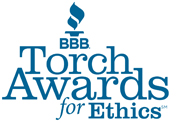Part 1 of Estate Planning Essentials outlines why your estate plan should include a will, a letter of intent, and perhaps even a trust.
Part 2 of Estate Planning Essentials covers the importance of a Power of Attorney and Health Care Power of Attorney.

As a reminder, estate planning packages may vary depending on state law. Consult with an attorney who specializes in estate planning or elder law to assist with executing documents that address your situation.
According to Investopedia, every estate plan should have these six documents:
- Will or trust
- Letter of intent
- Durable power of attorney
- Health care power of attorney
- Beneficiary designations
- Guardianship designations
In this three-part series, we highlight each document, explain what it covers, and include resources where you can learn more about why you might need this legal document.
Part 3: Designating beneficiaries and, if needed, guardians.
Beneficiary Designations
If you own a life insurance policy, you may already be familiar with designating a beneficiary. Your beneficiary inherits the payout of life insurance, the balance of retirement accounts, and health savings accounts upon your death.
A beneficiary is not just a person, though. It can also be a trust, estate, or your beloved charity.
You can name more than one beneficiary to divide the balance of accounts. You may also be asked to designate secondary beneficiaries if the primary dies before you. It is crucial to review and update your designated beneficiaries periodically to reflect your current wishes and situations.
Even with designated beneficiaries, you should still execute a will. Without a will, your designated beneficiary may have to go through probate court to claim the assets. A designated beneficiary is legally binding and supersedes your will.
Do You Need to Designate a Guardian?
Legal guardians are often associated with minor children. If you have responsibility for an underage child, you should designate a guardian in your will until the child is an adult.
Another situation that calls for designating a guardian is if you have responsibility for an adult who is unable to make their own decisions. Such a situation may be due to a developmental disability or age-related incapacity.
If you die without appointing a guardian, you leave the decision of who will care for your child or ward to the courts. LegalZoom.com lists the following considerations when choosing a guardian:
- Does this person love my children?
- Is this person responsible and up to the challenge of raising my children?
- Is the person a legal adult? A minor cannot be a legal guardian for another minor.
- Where does this person live? Would my children be uprooted and moved away from their friends and family members if they went to live with this guardian?
- What is the person's home situation? For example, does he or she have a house or a studio apartment? Is the potential guardian in a stable relationship?
- Will your children still have easy access to their other relatives?
- What are the person's religious and moral beliefs?
- Does the person have any medical conditions that would preclude being an effective guardian?
- If you cannot leave enough financial assets for your children's care, can the potential guardian afford to care for your child?
Even if the candidate meets all of the above conditions, you must discuss the responsibilities with potential guardians to make sure they are willing to take on this vital role in the event of your death.
Once you have the agreement of the guardian, work with an attorney who practices in the state where you live to update your will with the guardianship information. Do not leave it to the courts to determine who should raise your children or care for your disabled family member.
Other Stuff to Know
Throughout this series, we have referred to courts making decisions for you if you fail to put your wishes in a will. Probate court is where judges deal with the property and debt of someone who has died.
By having a will, you tell the court how you want your affairs handled upon your death. Yes, the probate court is still involved, even with a will. The court must validate the authenticity of the will, handle disputes related to the will, and enforce state laws regarding the distribution of property.
The executor may be court-appointed or designated in the will. In this role, your representative completes the tasks to settle your affairs, such as paying creditors, notifying beneficiaries, and filing legal and tax documents.
The process of settling someone’s affairs comes with expenses. For example, there are fees to file court documents, pay probate attorneys, settle debts, estate taxes, etc. The longer it takes to resolve someone's affairs, the higher the expenses.
Click here to read more about the process of accepting the role of an executor to settle someone's affairs upon their death. Be informed before accepting this great responsibility.
To learn more about estate planning, check out the entire series:
Part 1: Wills, Trusts and Letter of Intent
Part 2: Durable Power of Attorney and Healthcare Power of Attorney
Part 3: Beneficiary and Guardian Designations and other considerations
Note: The information provided on this website does not, and is not intended to, constitute legal advice; instead, all information, content, and materials available on this site are for general informational purposes only. Information on this website may not constitute the most up-to-date legal or other information. This website contains links to other third-party websites. Such links are solely for the convenience of the reader, user or browser; Living Well Stores does not recommend or endorse the contents of the third-party sites. Contact an attorney if you require legal advice.













